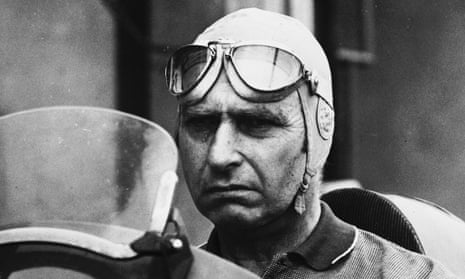The body of the grand prix legend Juan Manuel Fangio was exhumed on Friday to try to resolve paternity cases brought by two men claiming to be the five-times world champion’s son.
Judge Rodrigo Cataldo ordered the exhumation in Argentina to take DNA samples from the body.
The former racing driver Oscar Espinosa, who was commonly known as Cacho Fangio in motor racing circles, and Ruben Vazquez have brought separate paternity claims. Fangio, who won his five titles in the 1950s and died aged 84 in 1995, never married and was thought to be childless.
Vazquez, 73, says he is not after money and is merely seeking to clarify whether he is Fangio’s son. “There are no economic interests in my request,” he said. “I just want to be recognised for the Fangio surname.”
Espinosa’s mother, Andrea Berruet, had a long relationship with Fangio until 1960 and the 77-year-old is reported to have provided as proof of Fangio’s paternity a collection of letters that the world champion wrote to Berruet asking after him.
